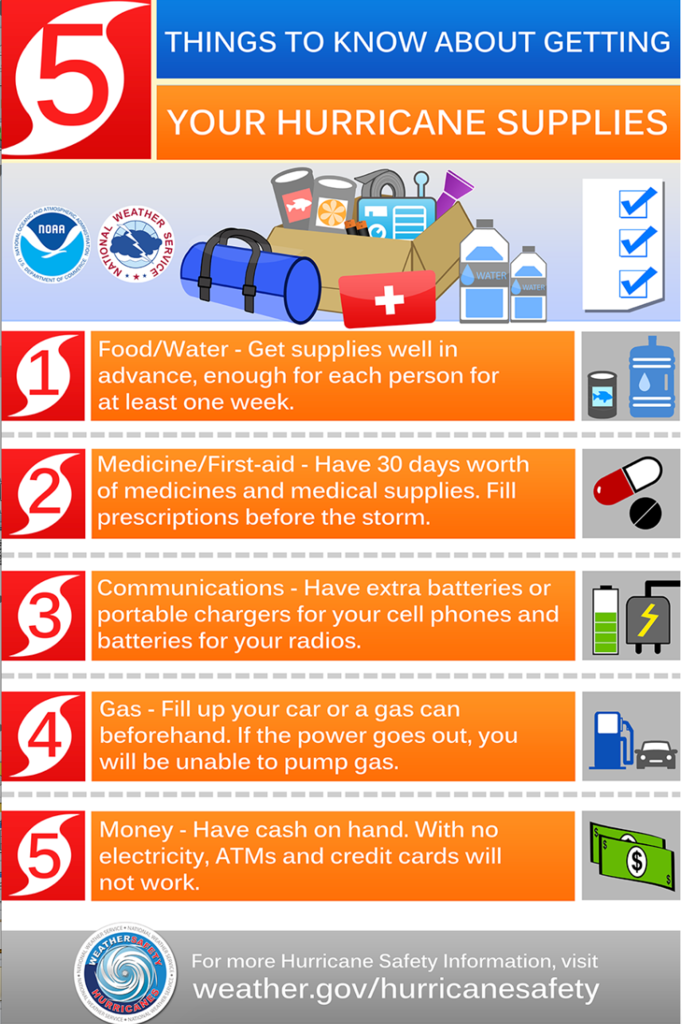Hurricane season is near: Are you prepared for catastrophe?
Visit the Summer Forecast Guide to the Season for the 2016 Summer Forecast, Summer Weather Preview and much more.
theweathernetwork.com
Wednesday, May 17, 2017, 4:44 PM - In the midst of Hurricane Preparedness Week, it's important to take time to brush up on safety tips and disaster protocol.
As the Fort McMurray fires have shown us, natural disasters spread quick, impacting the entire country in various ways -- so it's important to be prepared regardless of your location.
![]() SUMMER IS HERE: With El Niño helping shape global patterns what will Canadians expect from summer? Find out with The Weather Network’s 2017 Summer Forecast | FORECAST & MAPS HERE
SUMMER IS HERE: With El Niño helping shape global patterns what will Canadians expect from summer? Find out with The Weather Network’s 2017 Summer Forecast | FORECAST & MAPS HERE
June 1 marks the start of Atlantic hurricane season, and Weather Network meteorologists Dr. Doug Gillham and Jaclyn Whittal predict 2016 to be the most active Atlantic hurricane season in four years.
"This year will mark a distinct upswing in activity from the past three seasons as an active tropical storm season is expected in 2016, with the number of hurricanes forecast to return to near or above normal," Weather Network Meteorologist Dr. Doug Gillham.
The Canadian Red Cross says anyone possibly in the path of a storm should be prepared to sustain themselves for approximately 72 hours. Here's a collection of safety tips to keep you prepared.
PREPARE AN EMERGENCY KIT
An emergency preparedness kit should include water (2-4 litres per person), canned goods, can opener, a First Aid kit, batteries, flashlight, medication, personal documentation, a battery-operated radio, blankets and toilet paper. It's also a good idea to have spare house and car keys. Put aside some cash in small bills and coins, which would be especially useful if ATMs or debit card machines stop working.
Leave your emergency kit by the door in case you need to “grab it and go.”
GET TO HIGHER GROUND
When a hurricane or powerful storm is hitting, people in low-lying coastal areas should stay over with family or friends who live on higher grounds. It's also important to keep away from the water.
AROUND THE HOUSE
With high winds and rain, homeowners are urged to trim loose branches. Make sure there's no debris that could be blown away through the high winds. The time before a storm is also a great opportunity to put lawn furniture away and ensure that items outside of your house are secure. Some other good ideas include making a list of contact information of family members, health providers, employers. While you're at it, move your vehicle away from trees, which could topple over. It is also advised that you clear your drains and make sure your windows are closed.
FAMILY AND PETS
Every family is unique, and has different needs. A family with young children needs to think of ways to keep its smallest members occupied if the lights go out. A board game could do the trick. Stock up on any medication you might need, whether it is over-the-counter or prescription, and get an extra pair of eyeglasses, if possible.
Just as you need to have food and water for yourself, you also need to provide those essentials for your pets. Be sure to keep them inside during stormy weather.

The U.S. National Hurricane Center also urges people to know the difference between watches and warnings.
Hurricane / Tropical Storm Alerts:
Tropical Storm Watch: An announcement that tropical-storm conditions are possible within the specified area.
Hurricane Watch: An announcement that hurricane conditions are possible within the specified area.
Because outside preparedness activities become difficult once winds reach tropical storm force, watches are issued 48 hours in advance of the anticipated onset of tropical-storm-force winds.
Action: During a watch, prepare your home and review your plan for evacuation in case a Hurricane or Tropical Storm Warning is issued. Listen closely to instructions from local officials.
Tropical Storm Warning: An announcement that tropical-storm conditions are expected within the specified area.
Hurricane Warning: An announcement that hurricane conditions are expected within the specified area.
Because outside preparedness activities become difficult once winds reach tropical storm force, warnings are issued 36 hours in advance of the anticipated onset of tropical-storm-force winds.
Action: During a warning, complete storm preparations and immediately leave the threatened area if directed by local officials.
Extreme Wind Warning: Extreme sustained winds of a major hurricane (185 km/h or greater), usually associated with the eyewall, are expected to begin within an hour.
Action: Take immediate shelter in the interior portion of a well-built structure.



